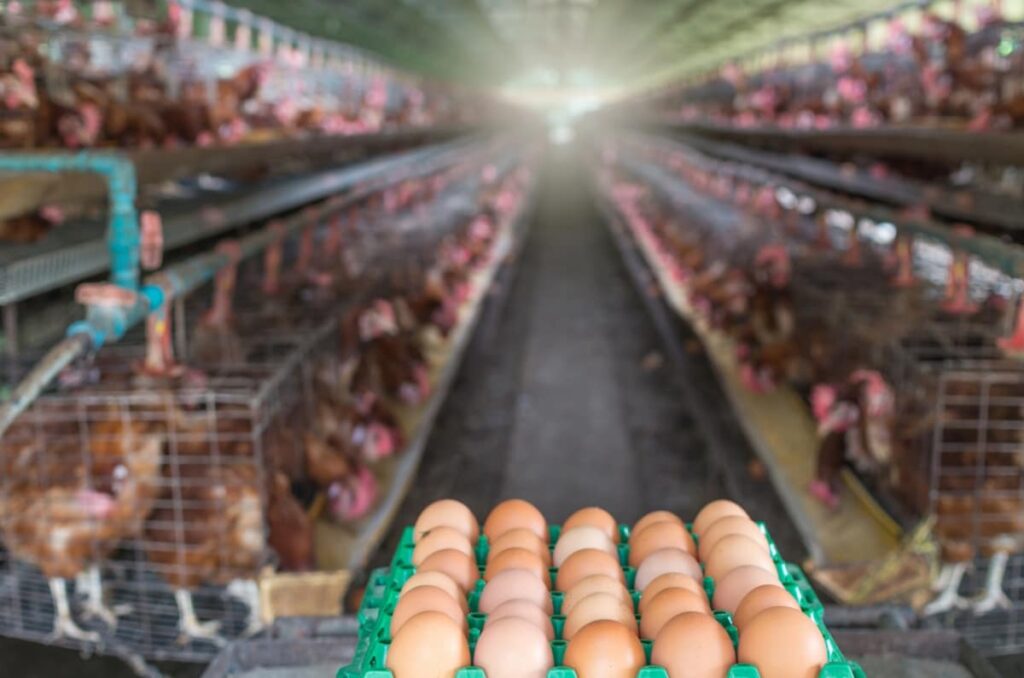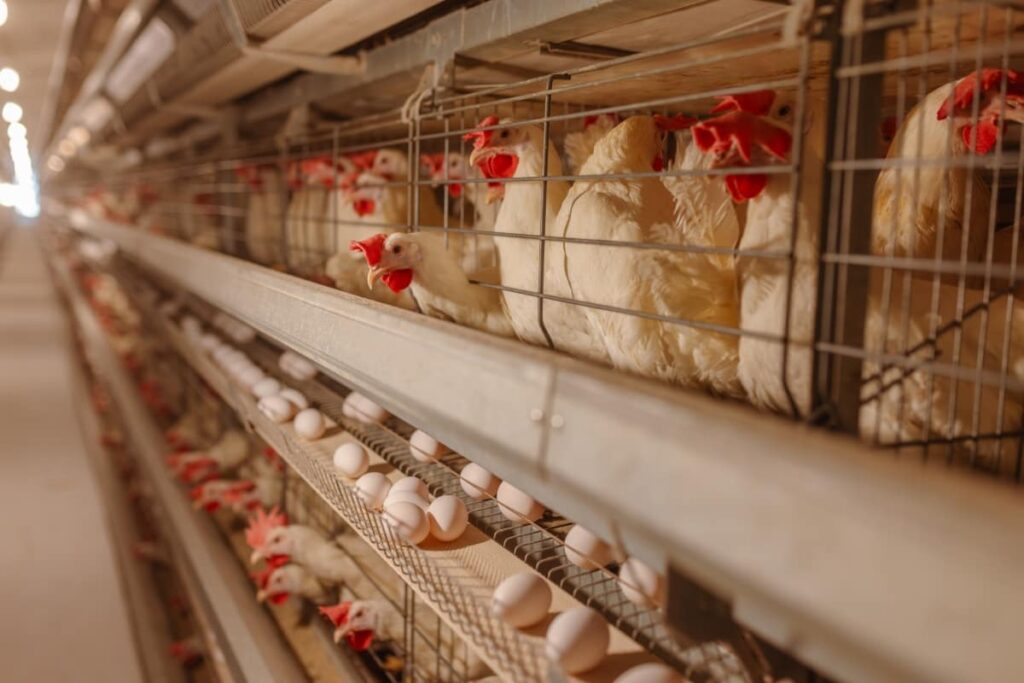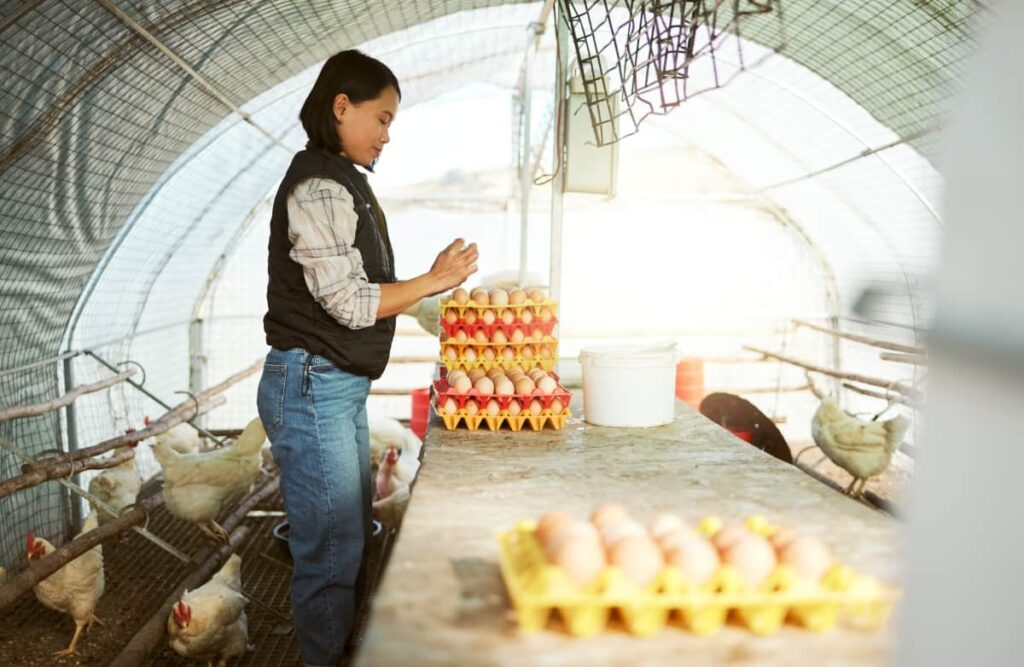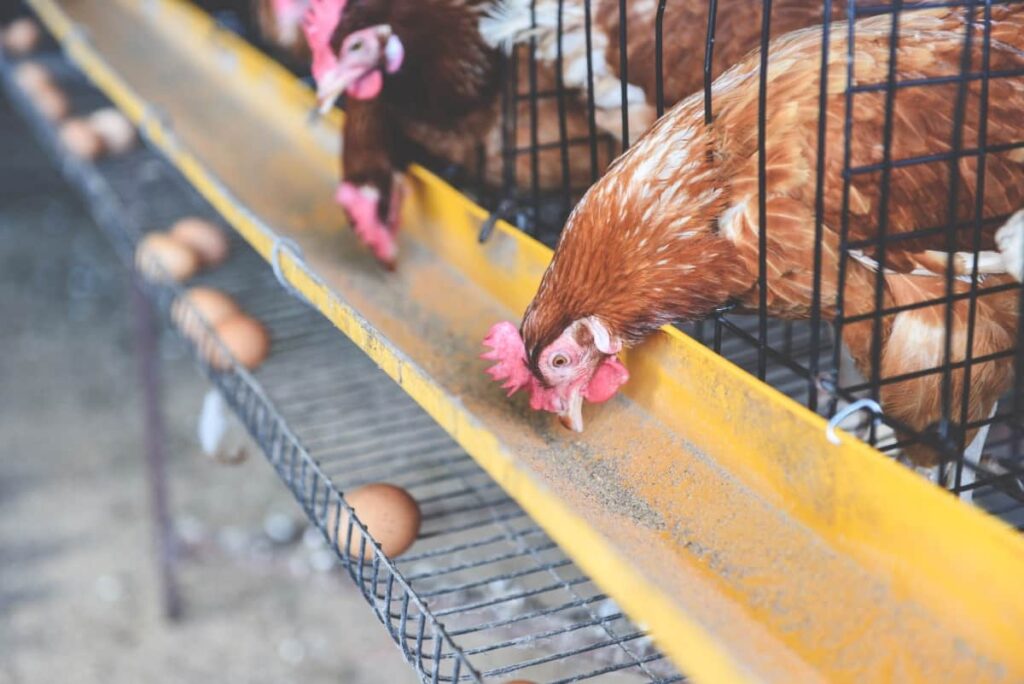Embarking on a poultry egg farm venture requires more than just an affinity for chickens; it necessitates a robust business plan tailored to turn your poultry passion into profit. A comprehensive plan lays the groundwork for operational efficiency and positions the farm for long-term sustainability in the competitive egg market.

Such a plan involves meticulously considering various facets, from understanding market demands to implementing best practices in hen care, ensuring optimal egg production. Moreover, it’s about strategically navigating through challenges, such as fluctuating feed costs and adhering to health regulations, to maintain a healthy bottom line. This article aims to guide aspiring poultry entrepreneurs through the essential steps of creating a poultry egg farm business plan that ensures the birds’ welfare and maximizes profitability.
Poultry Egg Farm Business Plan
Market Analysis
This involves understanding the local and broader egg market dynamics, consumer preferences, pricing strategies, and the competitive landscape. It’s essential to pinpoint your target audience, whether it’s local retailers, farmers’ markets, or direct sales to consumers. Analyzing current trends in egg consumption, such as the rising demand for organic or free-range eggs, can also offer valuable insights.
This information is pivotal in making informed decisions about your farm’s scale, the type of eggs you’ll produce, and your marketing approach, ensuring your business aligns with market demands and has a competitive edge.
Operations Plan
This includes selecting the right breed of hens for egg production, designing efficient housing that ensures the health and safety of the birds, and implementing a feeding regimen that optimizes egg production. It also involves setting up effective egg collection, cleaning, and packaging processes to maintain egg quality and safety.
Additionally, considerations for waste management, biosecurity measures to prevent disease outbreaks, and compliance with animal welfare standards are crucial. A well-thought-out operations plan ensures smooth farm functioning and enhances productivity and product quality, key factors in the farm’s profitability.
Financial Projections
Developing realistic financial projections is vital in assessing the viability of your poultry egg farm. This section should detail the initial investment needed for infrastructure, purchasing hens, feed, and other start-up costs. It should also include projected income from egg sales, considering market prices and your farm’s production capacity.
In case you missed it: Egg Failure to Hatch: Expert Guide to Diagnosing Egg Incubation Failures

Equally important is estimating ongoing expenses, such as feed, veterinary care, labor, and utilities, to understand the farm’s operational costs. By comparing projected income against expenses, you can forecast profitability, identify financial risks, and plan for contingencies. This financial blueprint helps secure funding or investments and guides financial decision-making, ensuring the farm’s growth and sustainability.
Marketing Strategy
A robust marketing strategy is essential to differentiate your egg farm in a competitive market. This starts with defining your unique selling proposition—what makes your eggs stand out? It could be anything from organic certification to specialized egg types like omega-enriched. Developing a strong brand identity, including a farm logo and packaging that reflects your farm’s values, can enhance market appeal.
Utilizing various marketing channels, from social media and online platforms to local community events, can broaden your market reach. Establishing partnerships with local businesses and engaging in community-supported agriculture (CSA) programs can further expand your customer base.
Risk Management
Managing risks is crucial in ensuring the sustainability of your poultry egg farm. This involves identifying potential risks, from disease outbreaks and feed price volatility to regulatory changes, and developing strategies to mitigate these risks. Implementing rigorous biosecurity measures can prevent disease spread while diversifying feed sources can cushion against price fluctuations.
Staying informed about industry regulations and maintaining compliance can also mitigate legal risks. Additionally, having contingency plans, such as insurance coverage for unforeseen events, can provide financial security. Proactive risk management protects the farm’s assets and income and ensures the business’s continuous operation and resilience in the face of challenges.
Breed Selection
Choosing the right breed of chickens is foundational to the success of a poultry egg farm. This decision should be based on factors such as egg production rates, adaptability to local climate conditions, and resilience to common poultry diseases. Some breeds are known for laying many eggs annually, while others are prized for their eggs’ quality or unique characteristics, such as shell color. Researching and selecting breeds that align with your farm’s goals and the preferences of your target market can significantly impact your farm’s productivity and profitability.
In case you missed it: Ultimate Guide to Raising Naked Neck Chickens: Feeding, Egg-Production, Breeding, and Care

Housing and Environment
Creating an optimal living environment for your chickens is crucial for their health, well-being, and egg production. This includes designing poultry houses that provide adequate space, ventilation, and protection from the elements and predators. Consideration should also be given to the layout and accessibility of nesting boxes, perches, and feeding and watering stations to encourage natural behaviors and ease of management. A well-designed housing system not only supports the physical health of the chickens but also contributes to their stress reduction, which can positively affect egg production.
Health and Welfare
Maintaining the health and welfare of your chickens is paramount for a successful egg farm. This encompasses regular health checks, vaccinations, and prompt treatment of any illnesses or injuries. Implementing best practices in animal husbandry, such as maintaining clean living conditions and providing a balanced diet, is essential for preventing disease and ensuring the longevity and productivity of your flock. Ethical treatment and adherence to animal welfare standards also resonate with consumers, increasingly influencing their purchasing decisions.
Production Management
Efficient production management involves coordinating all aspects of the egg production process to maximize output and efficiency. This includes scheduling and monitoring egg collection to ensure freshness, implementing effective egg handling and storage practices to maintain quality, and keeping accurate production records to track the performance of your flock.
In case you missed it: Ultimate Guide to Serama Bantam: Profile, Raising, Diet, Egg-Production, Price, and Care

Sustainability Practices
Incorporating sustainability practices into your egg farm business plan can reduce environmental impact, enhance social responsibility, and potentially lower operational costs. This could involve using renewable energy sources, implementing waste recycling and composting systems, and adopting regenerative agricultural practices that improve soil health and biodiversity. Sustainable farming practices contribute to environmental conservation and appeal to eco-conscious consumers, providing a competitive edge in the marketplace.
Conclusion
A comprehensive business plan is the cornerstone of launching and sustaining a profitable poultry egg farm. From conducting a detailed market analysis to laying out a clear operations plan, and from projecting finances to devising an effective marketing strategy, every step is geared towards building a resilient and profitable enterprise.
Integrating a robust risk management plan fortifies the business against potential setbacks, ensuring its longevity in the competitive egg farming landscape. With diligence, strategic planning, and a commitment to best practices, your poultry egg farm can thrive, contributing to the agricultural economy and bringing nutritious, farm-fresh eggs to tables nearby.
- Irrigation and Water Management in Pineapple Farming
- Blossom to Harvest: Mastering Flowering and Pollination in Papaya Farming
- Pig Fattening Essentials: From Selection to Sale for Beginners
- Raising Wagyu Cattle: A Complete Guide for Premium Beef Production
- Soil Types and Their Water Holding Capacity
- Optimizing Irrigation Schedules for Coconut Groves for Enhanced Yield
- Espresso Your Garden: Coffee Grounds for Healthier Acid-Loving Plants
- The Best Soil Mix for Snake Plants: How to Mix Your Own Snake Plant Soil
- Green Thumb Success: Expert Tips for Cultivating Greenhouse Beans All Year Round
